This article was co-authored by Trudi Griffin, LPC, MS. Trudi Griffin is a Licensed Professional Counselor in Wisconsin specializing in Addictions and Mental Health. She provides therapy to people who struggle with addictions, mental health, and trauma in community health settings and private practice. She received her MS in Clinical Mental Health Counseling from Marquette University in 2011.
There are 11 references cited in this article, which can be found at the bottom of the page.
This article has been viewed 27,743 times.
Have you ever lain awake at night worrying? Maybe you worry that your house will burn down or that a natural disaster will occur. These types of fears are common. But they can also be very harmful to your quality of life. Getting a good night's sleep is important for your physical and mental health. In addition to addressing your anxiety, you can do other things to help yourself improve your quality of sleep. There are several steps you can take to help quiet your mind and sleep peacefully.
Steps
Addressing the Roots of Your Anxiety
-
1Acknowledge your fear. It can be frustrating and scary to lie awake at night worrying. Maybe your concern is that your house will catch fire. Or maybe you are worried about a devastating earthquake. Your first step in dealing with these fears is to acknowledge them.[1]
- Think about the symptoms of your anxiety. Does it disrupt your sleep in physical ways? For example, does your heart race?
- Even if your major problem is a worrying mind that won't quit, that can still really affect your quality of life. Acknowledging your fears means that you are one step closer to being able to successfully cope with those fears.
- Try saying it out loud. For example, "I worry that my house will burn down and it is keeping me from sleeping. I need to find a way to deal with this issue."
- You may need to consider professional help in facing these fears.
-
2Keep a journal. It can be helpful to look for patterns to help you figure out when your fears are at their worst. Try writing down instances when the fears are particularly intense. Keeping a journal can help you figure out if there are any instances that seem to trigger your fears.[2]
- Make a habit of writing in your journal each morning or evening. Make a note of the things you did that day and rate your anxiety level.
- Maybe you will notice patterns. For example, you might realize that every night you watch the news, there is a report of a natural disaster somewhere. This could cause your anxiety to spike.
- If you find a pattern like this, you could take steps to avoid those triggers. Perhaps you could avoid watching the evening news.
Advertisement -
3Talk to a professional. Talk therapy can be an incredibly effective way to deal with anxieties. A mental health professional can help you address your fears. In therapy, you can also work to find ways to cope with those fears.[3]
- Maybe there is a definitive reason you are scared of fire. For example, if you were in a house fire as a child, you will obviously still have traumatic memories.
- A counselor can help you find ways to acknowledge those fears. If the root cause is less clear, the counselor can help you explore your past and present to try to find reasons for your anxiety.
- If you can find an explanation for your fear, it can be easier to find a solution that will work for you.
- Ask your regular doctor to recommend a reputable therapist. You can also ask close friends or family for recommendations.
-
4Look for a solution. Once you address your fear, you can look for ways to put your mind at ease. You might be able to sleep better if you know you have taken steps to ensure your safety. For example, you could create a fire safety plan.[4]
- Hold regular fire drills. Make sure that each member of your family knows the best way to exit your home in the case of a fire.
- Have the wiring in your home checked regularly by a professional. This will help ease worries about electrical fires.
- If you are worried about a natural disaster, make a plan for that. For example, you could make an earthquake preparedness kit.
- Prepare for a major earthquake by having a store of batteries, bottled water, and food.
- When you feel yourself worrying, you can comfort yourself by knowing that you have taking all possible steps to prepare in case of the worst.
-
5Shift your focus. Sometimes your mind just needs a break from worrying. If you find yourself having anxiety, ask yourself, "Is this something I can control?" If the answer is no, try to refocus your energy.[5]
- For example, many people worry about a terror attack. This is a real fear. However, it is not one that many people have control over.
- If you find yourself worrying about terrorists, take a break from the news. It's okay to go television-free for a few days.
- Taking a break from the cause of your anxiety can reset your brain and allow you to relax and get some rest.
- Try focusing your nervous energy on something you can control. Have you been meaning to clean out the garage? Spend your time doing that instead of worrying.
Improving Your Quality of Sleep
-
1Change your environment. There are many factors that affect your quality of sleep. It is important to address your anxieties, but there are other ways that you can help yourself sleep, too. One way is to improve your sleeping area.[6]
- Make sure your bedroom is at the right temperature. The ideal temperature for sleep is around 65°F (18.3°C).
- Avoid exposure to light. Your room should be dark and there should not be any glow from electronics. This means turning off your phone and your tv. Wear a sleep mask if your room is not dark enough.
- Limit the noise. Make sure your environment is quiet. If there is a lot of street noise, consider investing in a sound machine.
-
2Stick to a schedule. One of the most effective ways of improving your sleep is to get into a routine. Try to go to bed at the same time each evening. You should also get up at the same time each day.[7]
- Avoid sleeping in on weekends. Your body will get into a natural sleep rhythm if you stick to a consistent schedule.
- Try not to nap. Although can afternoon nap can seem delightful at times, try to avoid it. Napping can cause you to lie awake at night, and might increase your worries.
- Try to move around after dinner. Sometimes people eat a big meal and then doze on the couch. That can disrupt your sleep later. Instead, take a walk around the block.
-
3Practice relaxation techniques. To ease your mind at night, try some focused mental exercises. Relaxation techniques promote restful sleep and can help you avoid your late night worries about fire or other disasters. There are many variations you can try.[8]
- One method is to do a body scan. Lie in a comfortable position on your back. In turns, spend several seconds focusing on each area of your body.
- For example, focus on your shoulders. Imagine any tension you feel going away.
- As you focus on each body part, try to also be aware of your breath. Focus on breathing in and out evenly.
- When you are focusing on other things (your body and breath) your brain will not have time to worry about fire.
- You can also look for guided meditations. Consider downloading an app to your phone to help you learn focusing activities.
-
4Manage your stress. Worries can keep you awake at night. Big worries, such as fires, and small worries, such as making a grocery list, are both related to sleepless nights. Try to find ways to relieve your stress before bed.[9]
- Make a to-do list each evening. Writing down the next day's tasks can help clear your mind. You don't have to worry about forgetting something.
- Take deep breaths. Cleansing breaths can help calm your mind. Breathe in deeply while counting to five, then exhale while counting to five.
- Consider doing yoga before bed. Stretching and yoga postures can relax your mind and body, which can relieve stress and help you sleep.
-
5Create a bedtime ritual. Routines can help calm your mind. Get in the habit of setting your mind at ease each night before bed. For example, you can walk around your house to make sure you have locked all of the doors.[10]
- If you have a specific fear, such as fires, you can get in the habit of checking to make sure there are no candles burning or other obvious hazards.
- Your routine doesn't have to take long. It can make you feel more at peace just to check your bedtime ritual off your to-do list.
- Your ritual can also include other soothing tasks. Take a moment to spray a lavender linen spray on your sheets. The scent promotes restful sleep.
Making Physical Changes
-
1Get plenty of exercise.The mind body connection is incredibly important. If your body isn't in good shape, your mental health can suffer. Take steps to make physical changes in order to sleep better.[11]
- Make regular exercise a priority. Aim to get in at least 30 minutes of physical activity most days of the week.
- Find an activity that you like. If you enjoy dancing, try a Zumba class.
- Recruit a friend to go for a long walk. You'll get exercise and the added bonus of socialization.
-
2Eat a healthy diet. Your diet can directly impact your quality of sleep. Pay attention to the food you eat. Aim for a good balance of veggies, fruits, lean proteins, and whole grains.[12]
- Avoid alcohol in the late evening. A glass of wine with dinner is fine, but drinking alcohol within two to three hours of bedtime can disturb your sleep.
- Try not to eat late night snacks. Eating after dinner can keep you awake, especially if you choose heavy or sugary foods.
- Limit caffeine. Try not to have caffeine after 2pm
-
3Try acupuncture. Acupuncture uses tiny needles to pressure certain points in your body. It is a popular alternative treatment for many issues. Acupuncture may help you sleep through the night.
- Visit an experienced acupuncturist. Ask friends or family for a recommendation.
- Talk to your doctor before beginning an acupuncture regimen.
-
4Ask about medication. If lifestyle changes are not helping, talk to your doctor. It is possible that medication could help you sleep more peacefully. Ask your doctor is a prescription sleeping aid is right for you.[13]
- There are medications that can help you fall asleep and stay asleep. Make sure to discuss possible side effects with your doctor.
- You can also ask about homeopathic remedies. For example, many people take a melatonin supplement to aid in restful sleep. You can purchase these pills at most drugstores.
References
- ↑ https://www.psychologicalscience.org/news/science-study-verbally-acknowledging-fear-helps-dissipate-it.html
- ↑ https://www.urmc.rochester.edu/encyclopedia/content.aspx?ContentID=4552&ContentTypeID=1
- ↑ http://familydoctor.org/familydoctor/en/diseases-conditions/generalized-anxiety-disorder.printerview.all.html
- ↑ http://psychcentral.com/lib/overcoming-anxiety-in-todays-tough-tuned-in-plugged-in-world/
- ↑ http://psychcentral.com/lib/overcoming-anxiety-in-todays-tough-tuned-in-plugged-in-world/
- ↑ http://www.helpguide.org/articles/sleep/how-to-sleep-better.htm
- ↑ https://www.mentalhealthfirstaid.org/2020/05/the-importance-of-maintaining-a-routine-while-at-home/
- ↑ https://sleepfoundation.org/insomnia/content/relaxation-exercise
- ↑ https://www.sleepfoundation.org/sleep-hygiene/how-to-relieve-stress-for-bedtime
- ↑ https://sleepfoundation.org/sleep-tools-tips/healthy-sleep-tips
- ↑ https://www.hopkinsmedicine.org/health/wellness-and-prevention/exercising-for-better-sleep
- ↑ http://www.helpguide.org/articles/sleep/how-to-sleep-better.htm
- ↑ http://www.helpguide.org/articles/sleep/sleeping-pills-and-natural-sleep-aids.htm
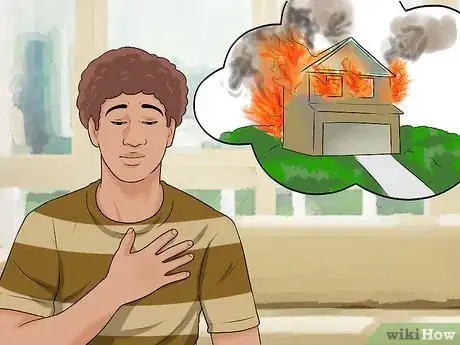
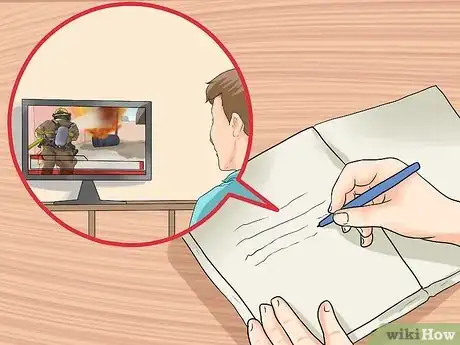

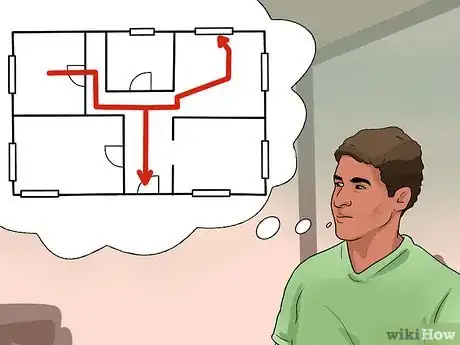
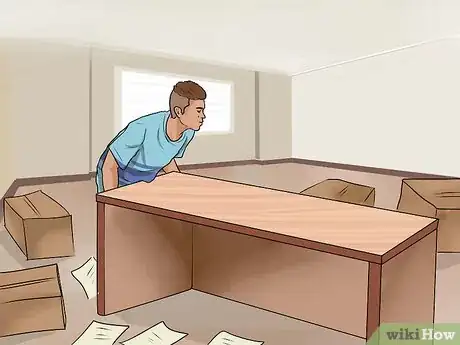
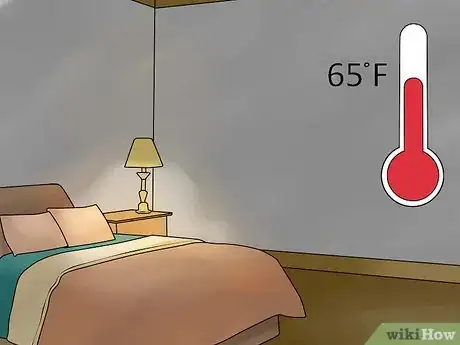
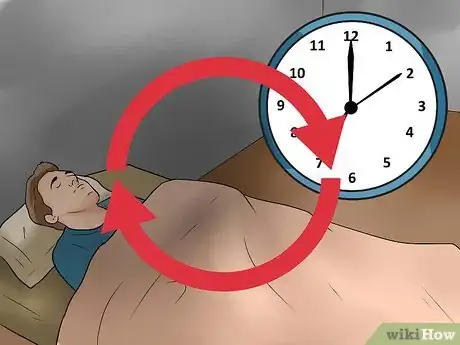
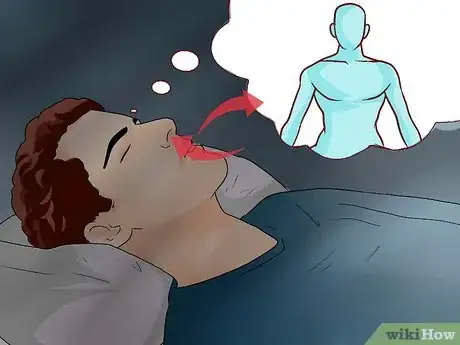

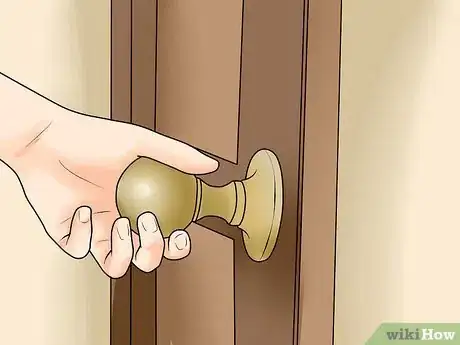



























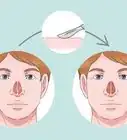




































Medical Disclaimer
The content of this article is not intended to be a substitute for professional medical advice, examination, diagnosis, or treatment. You should always contact your doctor or other qualified healthcare professional before starting, changing, or stopping any kind of health treatment.
Read More...